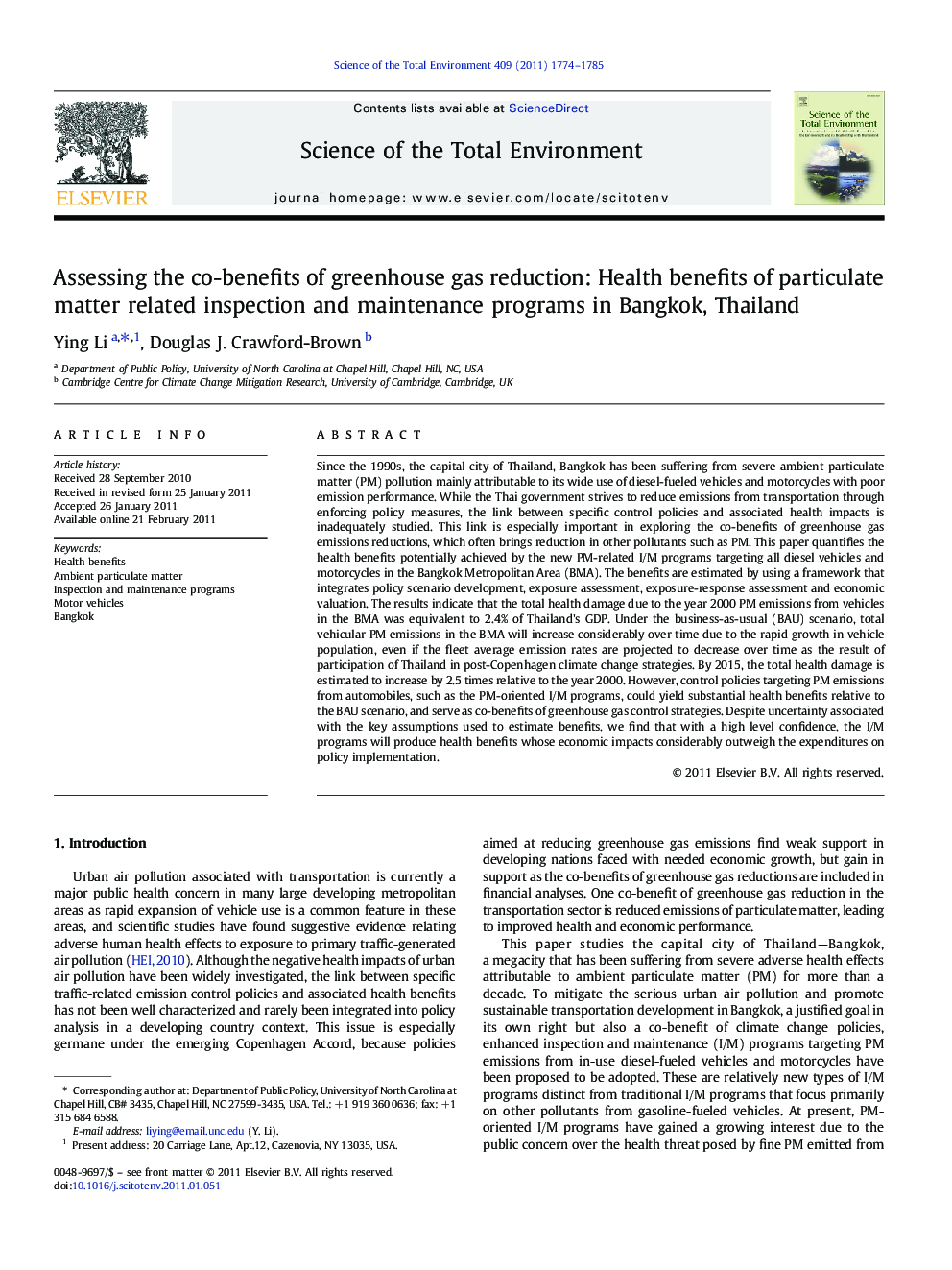| Article ID | Journal | Published Year | Pages | File Type |
|---|---|---|---|---|
| 4430215 | Science of The Total Environment | 2011 | 12 Pages |
Since the 1990s, the capital city of Thailand, Bangkok has been suffering from severe ambient particulate matter (PM) pollution mainly attributable to its wide use of diesel-fueled vehicles and motorcycles with poor emission performance. While the Thai government strives to reduce emissions from transportation through enforcing policy measures, the link between specific control policies and associated health impacts is inadequately studied. This link is especially important in exploring the co-benefits of greenhouse gas emissions reductions, which often brings reduction in other pollutants such as PM. This paper quantifies the health benefits potentially achieved by the new PM-related I/M programs targeting all diesel vehicles and motorcycles in the Bangkok Metropolitan Area (BMA). The benefits are estimated by using a framework that integrates policy scenario development, exposure assessment, exposure-response assessment and economic valuation. The results indicate that the total health damage due to the year 2000 PM emissions from vehicles in the BMA was equivalent to 2.4% of Thailand's GDP. Under the business-as-usual (BAU) scenario, total vehicular PM emissions in the BMA will increase considerably over time due to the rapid growth in vehicle population, even if the fleet average emission rates are projected to decrease over time as the result of participation of Thailand in post-Copenhagen climate change strategies. By 2015, the total health damage is estimated to increase by 2.5 times relative to the year 2000. However, control policies targeting PM emissions from automobiles, such as the PM-oriented I/M programs, could yield substantial health benefits relative to the BAU scenario, and serve as co-benefits of greenhouse gas control strategies. Despite uncertainty associated with the key assumptions used to estimate benefits, we find that with a high level confidence, the I/M programs will produce health benefits whose economic impacts considerably outweigh the expenditures on policy implementation.
Research Highlights► Health benefits are important co-benefits of greenhouse gas reduction. ► We quantify the health benefits of inspection and maintenance programs in Bangkok. ► The programs could yield substantial health benefits relative to business-as-usual. ► The benefits considerably outweigh the expenditures on policy implementation.
